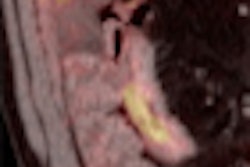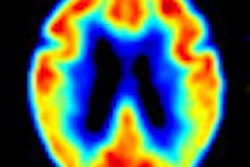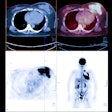Columbia University Medical Center in New York City has suspended all activities at its Kreitchman PET Center laboratory following a four-year probe by the U.S. Food and Drug Administration (FDA).
According to several FDA inspections, Columbia's research laboratory failed to correct "significant deviations" in the manufacturing process of drugs.
In a December 28, 2008, warning letter to Columbia, the FDA wrote that a June 2008 inspection revealed "significant deviations from the United States Pharmacopoeia (USP) compounding standards and official monograph for Positron Emission Tomography (PET) drugs in the manufacturing of your PET drugs." The letter specifically cited F-18 FDG injection, N-13 ammonia injection, O-15 water injection, and O-15 oxygen gas.
A follow-up inspection by the FDA in August 2008 concluded that the "deficiencies need more comprehensive corrections than the actions you have proposed or taken, especially since many of these are repeat violations."
More recently, according to a July 16 report by the New York Times, the FDA returned to Columbia this past January and determined that the laboratory had made no changes in its procedures and several violations continued.
Patients were injected with drugs that contained potentially dangerous impurities because of those manufacturing issues, the report also stated. In addition, it noted that the laboratory staff falsified documents to hide the impurities from the FDA.
In response, Columbia issued a statement from David Hirsh, MD, executive vice president for research, saying that the facility is "committed to ensuring that our research is in full compliance with all FDA regulations."
"We acknowledge serious shortcomings of quality control in the manufacturing process and record keeping at this lab," the statement continued. "That is why we are fundamentally reorganizing the lab’s management and operations in response to what the FDA told us. When manufacturing resumes under new leadership, it will meet the strictest standards and best practices for ensuring the quality of these materials."
In addition, Columbia stated that its investigation, requested by the FDA, found no evidence of patient harm. Columbia's findings were sent to the FDA on July 6.
Hirsh added that the temporary closure affects only research that uses locally manufactured experimental radioligands, which are the chemical compounds used for research scans, and does not affect patients with appointments at the PET facility.
"All clinical care and scans in the PET Center remain fully approved and operational," he noted. "In addition, other research scans that use radioligands purchased from outside commercial vendors continue to be performed as usual."
The statement did not say when the laboratory might resume operation.
By Wayne Forrest
AuntMinnie.com staff writer
July 20, 2010
Related Reading
Hospital to retake 900 mammograms due to employee error, May 12, 2010
FDA cracks down on mammo RT records, February 26, 2010
Suspended Canadian radiologist: 'This is a modern-day lynching,' July 30, 2009
Canadian image audit: 70,000 reasons to have a PACS, July 20, 2009
Web site solicits patients for cases of radiology errors, May 27, 2008
Copyright © 2010 AuntMinnie.com




















